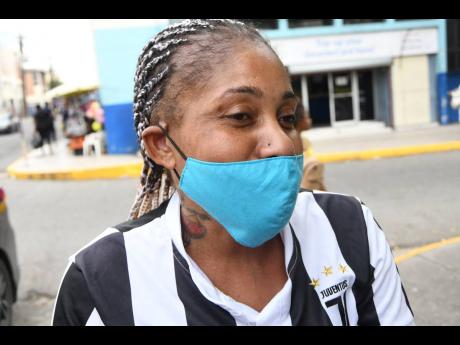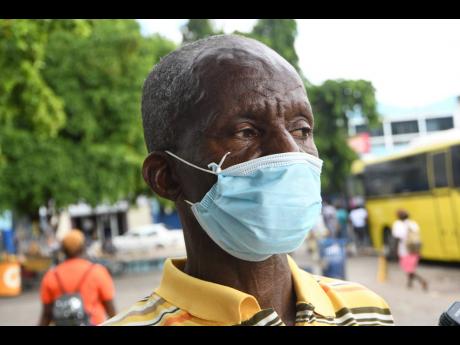‘We need to do better’ - Progress made in access to healthcare but more work needed
Thirty-year-old Shanekia Richards, an employee of the Kingston Public Hospital (KPH), does not have a health insurance policy. Neither does her mother.
Richards is, however, able to get check-ups through her place of employment, but attending to the medical needs of her mother has been financially difficult for her and her sibling.
Their mom, 65-year-old Maxine Williams Henry, suffers from diabetes, hypertension, lupus and “other critical illnesses”.
Richards explained that her mom is required to visit the doctor at least every two months, and since the onset of the pandemic, life has become more worrisome, primarily because the at-risk patient has to visit various medical facilities via public transportation.
“She go KPH, University Hospital, health centre, anywhere dem send her, ‘cause sometimes she go to the health centre and dem can’t manage her and dem give her a letter fi go Public and then Public send her over the globe,” she lamented.
The daughter expressed that if they could afford it, their mom would not be so exposed to COVID-19.
On the other hand, Erold Dixon, 68, told The Gleaner that he is cushioned by two health insurance plans.
Dixon explained that before retiring from the public sector, three-quarters of his health insurance was paid by them.
Now, as a pensioner, he is able to afford regular check-ups at a private medical facility.
The hypertensive senior said he is covered for the rainy days that may be ahead.
Today, December 12, is designated as Universal Health Coverage Day, and as part of the Sustainable Development Goals, all United Nations member states have reaffirmed their commitment to try to achieve full coverage by 2030.
The goal of universal health coverage is threefold: equity in access, sufficient quality, and no undue financial risk, meaning that the cost of using health services should not put people at risk of financial harm.
Professor of public health Peter Figueroa told The Gleaner that Jamaica has always aimed to have a comprehensive healthcare system, from as far back as the 1970s.
Life expectancy doubled
He said at that time, the aim was to ensure that there was a health centre in every community or at least accessible to Jamaicans readily throughout the island, and to ensure that the basic childhood vaccinations were given to all children.
“Between the 1920s and now, life expectancy in Jamaica has virtually doubled. Jamaica has had a strong tradition of public health and the Ministry of Health has certainly, since Independence, especially from the 1970s, tried to ensure that there is a comprehensive healthcare system. However, we remain with significant challenges,” he pointed out.
“We have to face up to the reality that although we say we are aiming to provide free healthcare, that is not the reality for many poor people in Jamaica and we need to do better.”
He cited the many patients accessing care in the public health system who still have to bear the cost of conducting diagnostic exams at external facilities.
He emphasised the importance of universal coverage in the context of the COVID-19 pandemic, noting that Jamaicans have access to care in public hospitals, but if one should require a negative COVID-19 test for travel, they have to turn to the private sector.
“We do have a good public health infrastructure, but in order to address certain health problems, you get through much quicker if you have the money to pay for it,” he said.
‘Considerable savings’
Meanwhile, Caribbean Community of Retired Persons (CCRP) founder Jean Lowrie-Chin reasoned that the Government has made a lot of efforts to cover Jamaicans who have non-communicable diseases through the National Health Fund (NHF).
“They have a very extensive list of pharmaceuticals that they cover for such persons. Given our limited resources as a developing country, we have done quite well in addressing this problem,” she said.
Lowrie-Chin urged qualified Jamaicans to sign up with the NHF as it offers “considerable savings”.
She explained that the CCRP has been able to offer to its 10,000 members an affordable, comprehensive health plan, which paid out more than $600 million in claims in the last year.
Lowrie-Chin pointed out that universal health coverage is critical in the COVID-19 era, even though public education has helped to limit the number of infections.
“You don’t want someone who feels the onset of such an illness and because they don’t feel they don’t have the wherewithal, they don’t go and get treated early ... . In spite of the challenges, we are fortunate that we have such a vigilant health service,” she added.


